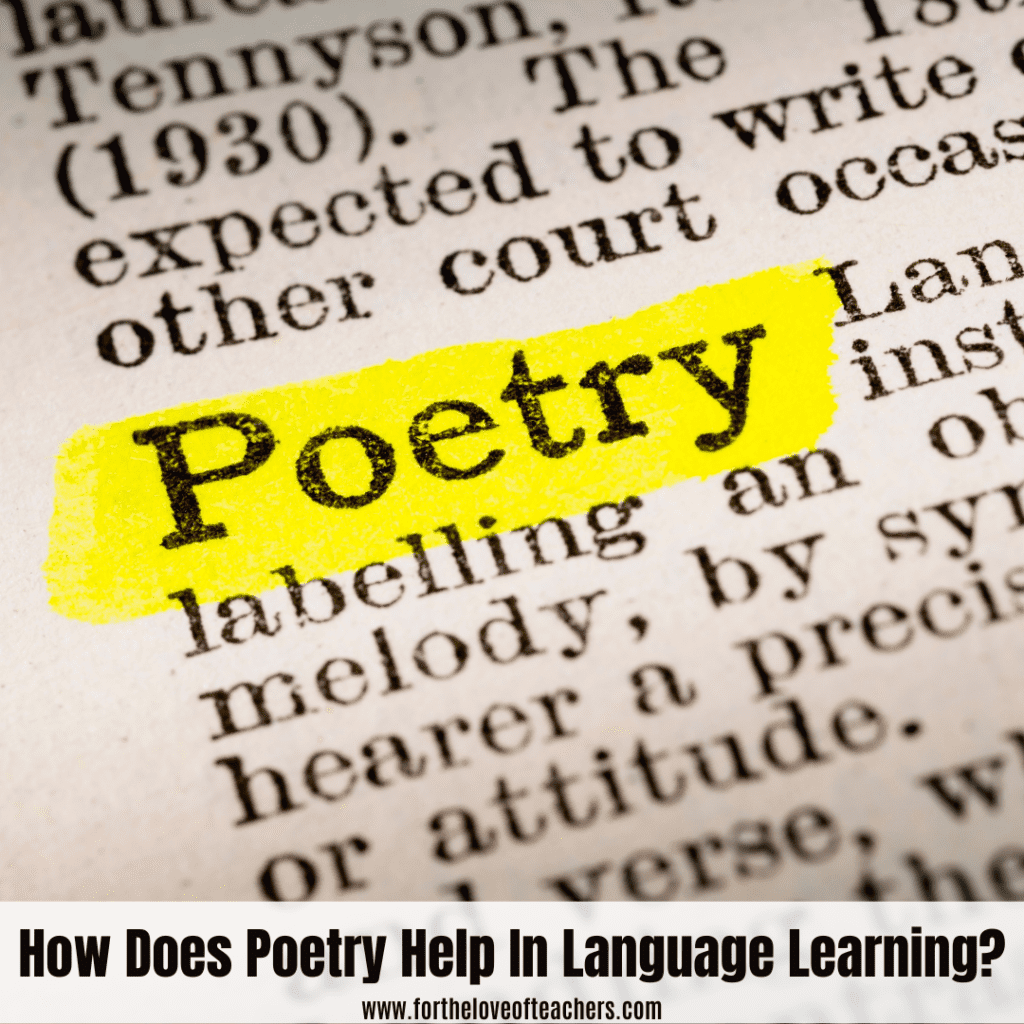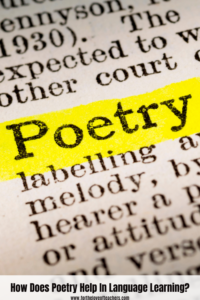
Long ago, literature was excluded from the list of reliable language teaching methodologies. Honeyfield (1977) argued that literature has its way of reducing information and therefore diminishes text cohesion, making it challenging to read. As such, it does very little in developing the four language skills (listening, speaking, reading, and writing) among learners. Specifically, poetry used to be viewed only as an artistic and expressive tool that does not follow the conventions of grammar and syntax in a language. It had controversies, from being figurative and polysemic to breaking grammar rules, particularly spelling and punctuation, used as creative writing elements. Many great poets like E.E. Cummings, Jane Austen, and William Faulkner have ousted language orthography to produce iconic works that we cite even in modern-day classrooms. Positively, with the discoveries in communicative approaches and research, the significance of literature was revisited and has eventually been given back its long-deprived glory.
Now, we use poetry as a form of freedom and expression. Many resort to it as a creative way to release emotional distress or to simply channel happiness. The intensity of each poem’s rhythm, word, and style allows readers to uncover the more profound significance of the context. These characteristics enable poetry to be assistive in language learning.
Language learning can be achieved through poetry since vocabulary, grammar, intonation, and cadence can be observed and practiced in a verse, poem, or lyric. Learners can be exposed to these fundamental language elements so that they also know how to use them with a variety of styles for multiple purposes, contexts, and situations. It is in this light that poetry must have its space inside the classroom, especially in a language class.
A study by Gonen (2018), who implemented a poetry-teaching framework for prospective English language teachers, revealed that implementing poetry in language classes helps in promoting motivation, creativity, and self-expression along with multi-skill development and interaction among learners. In other words, studying and writing poetry promote language learning emotionally and holistically. One timeless purpose of poetry in the classroom is to teach vocabulary words. The repertoire of vocabulary words in a poem provides students with a first-grasp of new words, their definitions, and pronunciations. Such exposure can provide learners with comprehension, which is an integral part of language learning. Context clues within sentences or stanzas aid them in the complete understanding of unfamiliar words.
Teachers also use poetry to improve learners’ storytelling skills. When poems are the topics for discussion and students are confronted with open-ended questions to reflect on, a culture of collaboration and openness can be established. Learners can get comfortable with the language, boost their self-confidence, and display eloquence. These are the effective and subjective aspects of learning, and when they know that there are no right or wrong answers, all the more that they speak up and practice the skill.
Language accuracy is also improved through poetry. Learners learning poetry can be presented with case studies in the form of poems where they can personally detect specific grammatical errors that may have purposely been ignored for artistic integrity. They can make certain judgments based on their knowledge of the language and, in effect, be more selective with the words they choose and use when it is already their turn to write or speak. Exposure to such complexities is fundamental in reinforcing the correct rendering of the language, particularly in grammar. Accuracy can be observed in the proper usage of tenses, verb forms, collocations, and colloquial expressions.
Poetry also forges creativity as learners need to rely on inspiration, imagination, intuition, and imagery to produce a poem or piece. These can help a learner express his story creatively and uniquely. The learner must also be familiar with figures of speech, interplaying with irony, satire, allusion, personification, alliteration, etc. These elements can enhance the learners’ creation and bring life to words, phrases, and sentences which can be advantageous when putting language into practice.
Since poems have rhythm and musicality, learners can also improve their cognition and memory through poetry. Albright (2017) cited that researchers have shown a significant relationship between how words rhyme and knowing how to read them. This only means that rhythmic pieces such as poems can improve reading skills and those good rhymers can essentially become good readers. Moreover, the musicality of poetry makes poems become great mnemonic devices and can further develop and strengthen memory (Yakubovich, 2017).
Activities for poetry are also neutral. In other words, they can be done individually or as a group so their peers can support those who may ordinarily feel self-conscious or have speaking anxieties. Choral readings help build learners’ fluency, self-confidence, and motivation. Doing it in unison with the entire class can help them experiment with volume, speed, and expression. With group activities like this, they improve their language skills and learn in an enjoyable way.
Do you incorporate poetry in your classroom to improve and enhance language learning?
About The Author: Bash Sarmiento is a writer and an educator from Manila. He is currently finishing his Doctor of Education degree in Miriam College. Bash writes laconic pieces in the education, lifestyle, and health realms. His academic background and extensive experience in teaching, textbook evaluation, business management, and traveling are translated in his works.
Thanks for reading!
If you like it, then pin it!



Christine Weis is a passionate educator, classroom management coach, wife, and mom of two busy boys. She enjoys teaching, writing, and creating resources for teachers.




Poetry can be so helpful to learn new languages. I definitely agree with you.
Anytime the people I interact with the language that they are trying to learn is always helpful. It gives them different perspective and different practice
Adding poetry is brilliant! Language can be really complicated, and these are really great tips. Especially with so many folks homeschooling nowadays!
I love poetry. Anything that can help with literacy skills is a plus in my book!
Poetry helps build early literacy skills in kids. Whether it be through spoken word or written, it allows students to express emotions
As a teacher, I have to agree with this. We use poetry to express our emotions and to be creative.
I’ve been inlove with poetry! I think it is one of the most interesting things to learn! And I think it really helps a lot when you want to learn a new language!
Poetry helps me understand deep words and understand others’ feelings. It also helps me express my feelings whether I am mad, happy, or sad.
Poetry helps me express what I want to say. My students have that notion too. It is their safe space.
Reading of any kind helps with language learning. I’ve never stopped to consider that applying to poetry as well but it’s a brilliant observance.
Interesting subject. I learned English with the help of movies and books. Never read poetry though. But, I have noticed that I understand my native language more deeply by reading poetry.